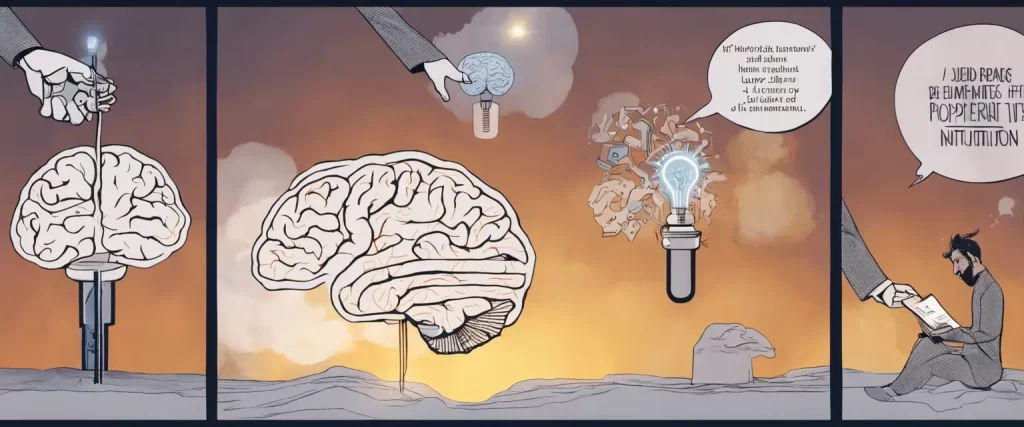——The Immortal Life of Henrietta Lacks by Rebecca Skloot & The Emperor of All Maladies by Siddhartha Mukherjee
In the realm of medical literature, few works stand out as starkly powerful and profoundly enlightening as “The Immortal Life of Henrietta Lacks” by Rebecca Skloot and “The Emperor of All Maladies” by Siddhartha Mukherjee. These two compelling books delve into the intricate and mesmerizing world of science, showcasing the immense impact of medical breakthroughs on humanity’s understanding of life and disease.
Rebecca Skloot’s “The Immortal Life of Henrietta Lacks” unravels the astonishing story behind the immortal HeLa cells, which have played a pivotal role in numerous medical discoveries since their discovery in the 1950s. Skloot follows the journey of Henrietta Lacks, a young African American woman whose cells were unbeknownst to her or her family, harvested and relentlessly proliferated by scientists. Through this captivating narrative, Skloot not only explores the ethical implications of medical research but also sheds light on the racial and social inequalities prevalent in American society at the time.
On the other end of the spectrum, Siddhartha Mukherjee’s “The Emperor of All Maladies” provides a sweeping historical account of cancer, spanning from ancient Egypt to modern-day breakthroughs. Mukherjee interweaves personal anecdotes, patient stories, and scientific discoveries to create an all-encompassing exploration of this tumultuous disease. More than a mere scientific treatise, the book encompasses the human experience of cancer, highlighting the fears, hopes, and triumphs encountered by patients, researchers, and physicians alike.
Both Skloot and Mukherjee employ meticulous research, captivating storytelling, and thought-provoking insights to untangle complex scientific subjects and present them in a relatable and accessible manner. While Skloot’s work focuses on the impact of ethical dilemmas and human rights in scientific endeavors, Mukherjee’s masterpiece delves into the historical development of medical knowledge, tackling the never-ending struggle against cancer.
Through this comparative study, we aim to explore and analyze the unique voices, perspectives, and contributions of Rebecca Skloot and Siddhartha Mukherjee in their respective works. By examining the similarities and differences between these two engrossing texts, we hope to shed light on how the world of medical literature has been enriched by their invaluable insights and discoveries.
Brief Summary of Two Books
The Immortal Life of Henrietta Lacks by Rebecca Skloot
The Immortal Life of Henrietta Lacks” by Rebecca Skloot is a nonfiction book that tells the remarkable story of Henrietta Lacks, an African American woman who unknowingly contributed to one of the most important medical advancements in history.
In the 1950s, Henrietta Lacks was diagnosed with cervical cancer and her cells were taken without her knowledge or consent. These cells, known as HeLa cells, became the first human cells to be grown and reproduced in a laboratory setting, proving to be crucial for medical research and leading to groundbreaking discoveries in areas such as polio vaccines, cancer treatments, and in vitro fertilization.
Skloot explores the complexities of Henrietta’s life by delving into her family history, her struggles with poverty and racism, and the emotional toll her cells being used for research had on her loved ones. Skloot also delves into the ethical questions raised by Henrietta’s story, such as the issue of informed consent and the commercialization of her cells, without any benefit or acknowledgement given to her family.
The narrative alternates between Henrietta’s personal story and Skloot’s own quest to uncover the truth behind the woman whose cells became instrumental in scientific advancements. Skloot interviews Henrietta’s family members, scientists, and medical professionals, providing a comprehensive and empathetic exploration of the impact Henrietta’s cells had on both medical science and her family’s lives.
“The Immortal Life of Henrietta Lacks” illuminates the often overlooked role of African Americans in scientific discoveries and highlights the urgent need for ethical considerations in medical research. Rebecca Skloot skillfully weaves together history, science, and personal narratives to deliver a thought-provoking and emotionally engaging story about the enduring legacy of Henrietta Lacks.
The Emperor of All Maladies by Siddhartha Mukherjee
The Emperor of All Maladies: A Biography of Cancer” by Siddhartha Mukherjee is a comprehensive and critically acclaimed book that explores the history, science, and impact of cancer. The book takes readers on a journey through centuries of human struggle against cancer, from its first documentation in ancient Egypt to the modern era of research and treatment.
Mukherjee skillfully weaves together anecdotes, scientific discoveries, and personal stories of patients to create a compelling narrative that sheds light on the complexities of cancer. He delves into the various types of cancer, their causes, and the challenges faced by researchers and doctors in finding effective treatments. The book also explores the social and cultural aspects of cancer, touching on topics such as the stigma associated with the disease and the development of cancer advocacy movements.
Through the captivating storytelling, Mukherjee not only educates readers about the disease but also highlights the resilience of individuals and communities affected by cancer. He portrays the fight against cancer as a collective effort, involving not only medical professionals but also patients, researchers, and philanthropists who have contributed to advancements in understanding and treatment.
Overall, “The Emperor of All Maladies” is a thought-provoking and illuminating read that humanizes the disease while providing a deep understanding of its impact on society. It serves as an important resource for anyone seeking to grasp the multifaceted nature of cancer and the ongoing battle against it.
Comparison between Two Books

Similarities in medical science
“The Immortal Life of Henrietta Lacks” by Rebecca Skloot and “The Emperor of All Maladies” by Siddhartha Mukherjee are both non-fiction books that delve into the world of medical science. While the books approach different topics within the field, they share several similarities in their exploration of medical breakthroughs, ethical considerations, and the impact on patients and society.
1. Medical Breakthroughs: Both books highlight significant medical breakthroughs that have had a profound impact on the field. “The Immortal Life of Henrietta Lacks” focuses on the discovery of HeLa cells, which revolutionized medical research and paved the way for numerous scientific advancements. Similarly, “The Emperor of All Maladies” delves into the development of treatments and therapeutic breakthroughs for cancer, describing the constant progress made by researchers and doctors in understanding and combating this disease.
2. Ethical Considerations: Both books raise important ethical questions surrounding medical science. In “The Immortal Life of Henrietta Lacks,” Skloot explores the bioethical concerns related to the use of Henrietta Lacks’ cells without her knowledge or consent, and the subsequent commercialization of these cells. Similarly, “The Emperor of All Maladies” raises ethical dilemmas related to experimental treatments, patient consent, and the challenges of balancing potential benefits and potential harms in cancer research.
3. Patient Impact: Both books emphasize the human aspect of medical science and the impact on patients and their families. “The Immortal Life of Henrietta Lacks” sheds light on the widespread use of Henrietta’s cells in medical research, highlighting the potential benefits for patients and the broader scientific community. Meanwhile, “The Emperor of All Maladies” narrates the stories of cancer patients and their battles, highlighting the struggles, hopes, and triumphs experienced throughout their journey. Both books humanize the medical advancements discussed, showcasing the real-life ramifications on individuals and their loved ones.
4. Societal Implications: Both books explore the wider societal implications of medical science. “The Emperor of All Maladies” delves into the historical context of cancer research, examining the social, cultural, and political factors that have shaped the perception and treatment of cancer. Similarly, “The Immortal Life of Henrietta Lacks” highlights the historical inequities and racial disparities in healthcare, shedding light on broader societal issues related to medical ethics, access, and justice.
In summary, “The Immortal Life of Henrietta Lacks” and “The Emperor of All Maladies” offer thought-provoking insights into the world of medical science. They provide a deeper understanding of the groundbreaking discoveries, ethical dilemmas, and the impact on patients and society. Despite approaching different aspects of medical science, these books share common ground in their exploration of these themes.
Divergences in medical science
“The Immortal Life of Henrietta Lacks” by Rebecca Skloot and “The Emperor of All Maladies” by Siddhartha Mukherjee are both highly acclaimed books that delve into the field of medical science. While they explore different topics and narratives, there are key divergences regarding medical science in these books.
1. Focus:
– “The Immortal Life of Henrietta Lacks” primarily focuses on the story of Henrietta Lacks, an African American woman whose cells, known as HeLa cells, were taken without her consent and became vital in numerous scientific discoveries. The book intertwines Henrietta’s personal story and her family’s struggles with the ethical issues surrounding the use of her cells.
– On the other hand, “The Emperor of All Maladies” centers around the history of cancer. Siddhartha Mukherjee discusses the disease’s origins, scientific advancements in diagnosis and treatment, and the impact it has had on individuals and society. The book presents a comprehensive study of cancer’s historical, social, and scientific aspects.
2. Ethical considerations:
– “The Immortal Life of Henrietta Lacks” heavily addresses the ethical quandaries associated with medical research. The book highlights the exploitation of Henrietta Lacks and her family, who were largely unaware of the significance of her cells until years later. Skloot raises questions about consent, racial inequality, and the ownership of biological material, shedding light on the systemic issues in medical science.
– Though ethical concerns are also mentioned in parts of “The Emperor of All Maladies,” Mukherjee’s focus is more on the medical accomplishments and challenges in the fight against cancer. He touches on experiments, clinical trials, and the balance between helping patients and ensuring proper ethical procedures. The book provides an overview of the progress made in understanding and treating cancer, rather than exploring the ethics surrounding research.
3. Narration style:
– Skloot’s “The Immortal Life of Henrietta Lacks” follows a journalistic approach, where she weaves together scientific research, interviews, and personal stories to present a comprehensive account. The narrative shifts between Henrietta’s life, her family’s experiences, and Skloot’s own interactions with them. This captivating storytelling adds emotional depth to the book while ensuring scientific accuracy.
– Conversely, Mukherjee’s “The Emperor of All Maladies” is more autobiographical, as he combines his personal experiences as an oncologist with extensive historical research. The book reads like a historical narrative blended with scientific insights, providing a broader understanding of cancer and the medical advancements that have taken place over the decades.
In summary, while both “The Immortal Life of Henrietta Lacks” and “The Emperor of All Maladies” delve into medical science, they diverge in their focus, ethical considerations, and narrative styles. Skloot’s book centers on the personal story of Henrietta Lacks and her family while examining ethical concerns, while Mukherjee’s work provides a historical account of cancer research with a focus on medical advancements.

Conclusion
Both The Immortal Life of Henrietta Lacks by Rebecca Skloot and The Emperor of All Maladies by Siddhartha Mukherjee are highly regarded books that offer unique insights into important topics.
The Immortal Life of Henrietta Lacks tells the story of Henrietta Lacks, an African American woman whose cells were unknowingly taken and used for scientific research. This book explores the ethical implications of medical research and raises important questions about race, consent, and the exploitation of marginalized communities. Skloot’s book is a compelling blend of history, science, and personal narrative, making it a great choice for those interested in the intersection of medical ethics, racial justice, and scientific discovery.
The Emperor of All Maladies is a comprehensive history of cancer that delves into the scientific, social, and cultural aspects of this disease. Mukherjee explores the fascinating and complex history of cancer research, highlighting the advancements made over the years while also shedding light on the challenges that remain. This book provides a thorough understanding of the disease and is particularly valuable for anyone interested in the history and current state of cancer treatment and research.
Ultimately, the choice between these two books depends on your personal interests. If you are more drawn to the social and ethical implications of scientific research, The Immortal Life of Henrietta Lacks may be the more suitable option for you. On the other hand, if you are fascinated by the intricacies of cancer as a disease and its historical context, The Emperor of All Maladies will likely be a more engaging read. Both books have been widely acclaimed and provide valuable knowledge and insights, so it may be worth considering reading both if time permits.



